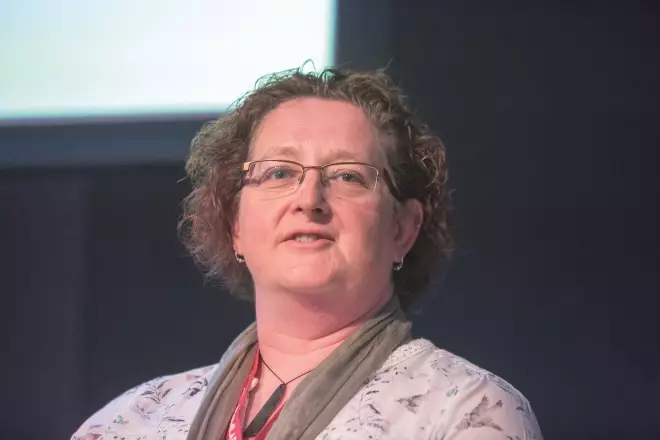
Roy Scott / Ikon Images
Approximately 1 in 4 people in the UK will experience a mental health problem this year, from generalised anxiety and depression to bipolar and post-traumatic stress disorders.
People with severe mental illness are likely to die, on average, 10 years earlier than the rest of the UK population. Despite the massive toll mental health conditions take on society, for years their treatment has been isolated from physical healthcare.
“For too long mental health has been ignored; by government, by public services and by society as a whole,” says Rachel Boyd, information manager at Mind, a mental health charity that aims to provide advice and support to empower people experiencing mental health problems.
In recent years, mental health has taken a more prominent position on the agendas of the UK government and the NHS, with a conscious effort now being made to provide additional investment to improve patients’ access to better services. In February 2016, NHS England published the ‘Five year forward view for mental health’, laying out an ambition to see an additional 1 million people being treated by mental health services by 2021, including 70,000 more children and young people[1]
. This document was supported by a 2017 Health Education England (HEE) document called ‘Stepping forward to 2020/21: the mental health workforce plan for England’, which aimed to highlight the staff required to deliver the transformation set out in NHS England’s vision[2]
.
“Now there is a real opportunity to talk, not just about what the NHS needs to do, but the changes we need to see in all aspects of life, if we are to truly support those of us with mental health problems,” says Boyd.
“Mental health problems can affect anyone, no matter what their background,” she adds.
Now there is a real opportunity to talk, not just about what the NHS needs to do, but the changes we need to see in all aspects of life, if we are to truly support those of us with mental health problems
The 37-page HEE document mentions pharmacists just twice — first, in respect to local employers encouraging other professions, such as pharmacists, to work differently to support the growth and transformation of new and existing mental health services. And secondly, to acknowledge the assistance pharmacists can provide to consultant psychiatrists in terms of advice, support and services with regard to prescriptions.
But the role of pharmacists in mental health can, and does, go much further, from community pharmacists who regularly encounter individuals with mental health problems to specialist mental health pharmacists who use their knowledge to optimise treatments for individuals being cared for in mental health facilities.
“Specialist mental health pharmacists can, and should, be using their skills and expertise to individualise treatments for best outcomes for service users,” says Peter Pratt, NHS England and NHS Improvement head of mental health and learning disability medicine.
Specialist mental health pharmacists can, and should, be using their skills and expertise to individualise treatments for best outcomes for service users
All pharmacists should be able to work with healthcare colleagues to support people with severe mental illness to live longer and healthier lives, says Pratt. They can do this by promoting basic physical and oral health through encouraging exercise and providing services such as smoking cessation.

Source: Courtesy of Peter Pratt
“Best use of medicines in mental health and learning disability cannot be considered in isolation,” says Peter Pratt, NHS England and NHS Improvement head of mental health and learning disability medicine
Pratt’s goal as head of mental health is to ensure improvements are made in the way pharmacological treatments are used in people with mental health problems.
“Best use of medicines in mental health and learning disability cannot be considered in isolation, so it is important to ensure that the wider mental health programmes take appropriate account of medicines, but also to ensure mental health is not overlooked within the wider NHS,” he says.
Call for help
The role of pharmacists in mental health spans both primary and secondary care and a variety of healthcare settings.
“In community pharmacy we probably see more mental health patients and their carers than anywhere in the healthcare system,” says Hemant Patel, secretary of North-East London local pharmaceutical committee.
In community pharmacy we probably see more mental health patients and their carers than anywhere in the healthcare system
“The hospitals deal with the severe cases — but those with mild-to-moderate anxiety or depression come to the community pharmacy for help.”
Patel is involved in a scheme currently running across 10 pharmacies in the boroughs of Barking and Dagenham in East London where, following treatment for mental health problems at the North East London Foundation Trust (NELFT), patients come to the community pharmacy for physical health and medicines checks.
“Sometimes when NELFT releases patients into the community, only around 28% of the people come back [to the hospital] for their physical health checks,” explains Patel.
The community pharmacists involved in the scheme have been trained as “health coaches” who take time to get a holistic picture of the patient’s health — their physical health; social circumstances; and the state of their mental health and medicines taking.
The pharmacist then creates a written care plan and the patient chooses what they would like to prioritise in terms of improving their health, such as smoking cessation, or a medicines check, which is then provided by the community pharmacy.
As well as being well received by patients and carers, the scheme has changed the views of the pharmacists involved.
“Their stigma [regarding mental health] has now been replaced with compassion and commitment,” says Patel.
He hopes that in future those suffering from mild or moderate anxiety and depression will be able to see a specialist mental health pharmacist in the community.
In another pilot scheme, run by Ray Lyon, chief pharmacist and specialist in mental health at Sussex Partnership NHS Foundation Trust, community pharmacists undertake physical health checks for young people on attention deficit hyperactivity disorder (ADHD) medication, record the results, action them appropriately and answer family questions relating to medication. This process would normally take up time in specialist clinics. There were 137 eligible families involved in the scheme and, from the 21 who gave feedback, 90% wanted the service to continue, primarily because they were not required to miss work or school. The scheme was also found to free up 40% of the clinic’s time to enable the staff to deal with more complex cases.
As one of two mental health pharmacists in the all-England chief pharmacists group, chaired by chief pharmaceutical officer Keith Ridge, Lyon has the opportunity to raise important issues around mental health with other chief pharmacists as well as Ridge. One of his aims is to upskill chief pharmacists in mental health.
“We need to look at changing peoples’ attitudes to mental health — whether that’s in community or in the acute trust,” he says.
“We’re very poor at talking to [mental health] patients in a meaningful way about their experiences [with their medications] — do they believe [the medicines] work? Do they understand the reality of the medication — for example, for those with schizophrenia, the reality is that they will be on their medication for life.”
He adds that pharmacists and pharmacy technicians could make a big difference to keeping patients well within the community.
“Mental health is more focussed on listening and understanding — [pharmacists] need to engage with this and lead on it,” he says.
Mental health is more focussed on listening and understanding — [pharmacists] need to engage with this and lead on it
However, Patel believes that community pharmacists will always be limited in the help they can offer if there is a lack of vision in the NHS and government, as well as the national pharmacy bodies.
“I have not seen anything that persuades me a real effort has been made to convince government of the role of community pharmacists in supporting mental health patients,” he says.
Mental health in secure facilities
But, as Nikki Holmes, outgoing president of the College of Mental Health Pharmacy (CMHP) and head of pharmacy in the forensic services of Nottinghamshire Healthcare NHS Foundation Trust, says, traditionally pharmacists do not shout about the work they are doing and the impact they can make.

Source: Nadia Attura / Royal Pharmaceutical Society
“It’s an absolute privilege seeing somebody at their worst and then walking their journey with them and seeing them get better and move on — that’s just the best thing ever,” says Nikki Holmes, head of pharmacy in the forensic services of Nottinghamshire Healthcare NHS Foundation Trust
“We tend to hide our light under a bushel,” she says, “but we are getting better at getting involved where we need to be, both strategically and directly with patients.”
“There aren’t enough [mental health pharmacists] to really get stuck in. [CMHP] is starting to work with clinical commissioning groups and primary care, including community pharmacists, to support people in the community to up their mental health knowledge and their confidence in working with people living with mental illness,” she says.
[CMHP] is starting to work with clinical commissioning groups and primary care, including community pharmacists, to support people in the community to up their mental health knowledge and their confidence in working with people living with mental illness
Holmes’s work in forensic mental health, based at Rampton Hospital in Nottinghamshire, is unique compared with other mental health pharmacy roles. Rampton Hospital provides services for more than 300 patients requiring care and treatment in conditions of high security, and comprises several local, regional and national clinical services, including mental health services for men and women.
Holmes’s remit also includes overseeing services to medium secure and low secure settings, and several prisons.
“We are dealing with people who are not necessarily any more unwell [than other patients] but the nature of their illness makes them a risk to themselves or others,” she explains.
Rampton Hospital is very much “recovery focused”, meaning that the eventual aim is to get the patients better and back out into the world.
“Just because someone’s in a high-secure setting doesn’t mean that’s where they’re going to be for the rest of their lives. We do move people on, we do get people better, we do manage and mitigate risk and that, in a way, is what forensics is all about.”
However, because this can be a slow journey, patients can remain in the service for a long time. According to Holmes, this was one feature of mental health pharmacy that appealed to her. “It’s an absolute privilege seeing somebody at their worst and then walking their journey with them and seeing them get better and move on — that’s just the best thing ever.”
It’s an absolute privilege seeing somebody at their worst and then walking their journey with them and seeing them get better and move on — that’s just the best thing ever
The outlook from secondary care
For trust chief pharmacist Matthew Elswood the high level of clinical input and acceptance pharmacists have in the multidisciplinary team are what appeal to him most about working in mental health. “We’re involved in ward rounds, we’re influential in decision making, so we’re not following the consultant around on the acute wards signing the cards, we’re helping the patients choose the medicines they’re going to take and providing information to them direct,” he says. Elswood, who is in charge of two major pharmacy sites, two satellite dispensaries and a child and adolescent mental health (CAMH) unit, often follows up with patients directly after ward rounds to iron out medication issues. These interventions can range from assessing the falls risk of medicines, arranging palliative care and giving advice on intractable pain to aiding patients with clozapine.
He says that pharmacists are a key source of support for prescribers. “It’s about working with prescribers, knowing what their go-to drugs are, what patterns of prescribing you see and trying to support them to make wiser choices.”
It’s about working with prescribers, knowing what their go-to drugs are, what patterns of prescribing you see and trying to support them to make wiser choices
Adam Crampsie, who manages 22 mental health services as head of UK clinical operations for Celesio UK, a leading provider of integrated healthcare services to the NHS and owner of LloydsPharmacy, believes that there is no other field of medicine in which pharmaceuticals add so much value. “In mental health, therapeutic drug monitoring is vitally important,” he says, adding that patients are on very complex medicines and regimens. “Adherence is terrible in mental health, it leads to a vicious cycle — poor adherence leads to worsening symptoms, which leads to less clarity around their mental state, which leads to even poorer adherence.
“As a pharmacist, you can make such a huge intervention in that patient’s life.”
How do I talk to someone with a mental illness?
While it is clear than a lot of positive work is going on in mental health pharmacy, pharmacists often lack confidence in this area.
David Branford is an independent pharmacy advisor on learning disabilities and mental health and member of the Royal Pharmaceutical Society English Pharmacy Board. He highlights that despite mental health being taught during the pharmacy undergraduate degree and preregistration training, and the wealth of learning material available, if you ask newly-qualified pharmacists whether they are confident talking to someone with depression, universally, they say no.

Source: MAG / The Pharmaceutical Journal
David Branford, an independent pharmacy advisor on learning disabilities and mental health, and member of the Royal Pharmaceutical Society English Pharmacy Board, says that it is not a lack of training that is standing in the way of pharmacists entering careers in mental health, but a lack of day-to-day experience
“What they lack is hands-on, experiential learning,” he says.
“They might learn about schizophrenia but they don’t actually meet anyone with schizophrenia — it’s not the lack of availability of information and didactic material —it’s a lack of day-to-day regular contact.”
They might learn about schizophrenia but they don’t actually meet anyone with schizophrenia — it’s not the lack of availability of information and didactic material —it’s a lack of day-to-day regular contact
Elswood agrees, saying that spending time with a specialist mental health pharmacist in hospital enables young pharmacists to see how they can make an impact in a multidisciplinary team.
As outgoing president of the CMHP, Holmes says that the college gets many queries from pharmacists asking “how do I talk to someone with a mental illness?”
Her reply is that “you talk to them in exactly the same way you’d talk to anybody else — they’re a human being”!
Crampsie believes the fear of dealing with patients with mental illness exists because it pushes pharmacists, particularly those in community, out of their comfort zone.
“As a community pharmacist you get very comfortable working within your sphere of what you see every day.
“What you don’t see are really high doses of antipsychotics for schizophrenia, or clozapine, because they’re not run of the mill in a community pharmacy,” he says, adding that all pharmacists should spend time upskilling themselves in mental health as part of their continuing professional development.
CMHP provides educational courses for both those new to mental health and those with more of a specialist interest. Support is also available via the CMHP’s email groups, which put pharmacists in touch with several hundred other mental health professionals across the world giving pharmacists a peer support network right at their fingertips.
The college has also been working with the Centre for Pharmacy Postgraduate Education (CPPE) on its education resources as well as the British Pharmaceutical Students’ Association to try to get support and education to pharmacists at the beginning of their careers and highlight that mental health is a specialty that exists for pharmacists.
Crampsie believes that the profile of mental health pharmacy needs to be raised significantly so people start to see it as a valuable career opportunity. At the moment it is not an obvious career path for newly qualified pharmacists, he says.

Source: Celesio UK
Adam Crampsie, head of clinical operations and development at Celesio UK, believes the fear of dealing with patients with mental illness exists because it pushes pharmacists out of their comfort zone
Unmet need
Boyd says that Mind hears from people every day who are struggling to access support, highlighting that there is still a great deal of unmet need in mental health. Pratt is keen to build a picture of the range of services pharmacists are offering in England to people with mental illness and learning disabilities.
“We know that there are likely to be challenges in the availability of health professionals with the skills to deliver non-pharmacological treatments, so by taking the lead for medicines use in mental health, pharmacists could release some of the pressure on other health professionals and free them to deliver much needed non-pharmacologic treatments,” he says.
According to Pratt, a mental health strategy currently being developed for pharmacy spans several areas — from workforce, data and leadership to genetics and genomics — recognising that pharmacists now have a significant opportunity to take their place alongside other healthcare professionals to manage and support the best use of mental health medicines.
Boyd believes there should be a focus on prevention, to lessen the burden on the NHS in the future. Pharmacists, particularly those in community, have a “crucial role” to play in this — even if this means just asking how a patient is feeling.
She adds: “We believe that if we get mental health support in primary care right, we can help people stay well and be less likely to reach the point of crisis, which is good for individuals, families, communities and the wider health and social care system.”
References
[1] The five year forward view for mental health. A report from the independent Mental Health Taskforce to the NHS in England. February 2016. Available at: https://www.england.nhs.uk/wp-content/uploads/2016/02/Mental-Health-Taskforce-FYFV-final.pdf (accessed November 2017).
[2] Stepping forward to 2020/21: the mental health workforce plan for England. A report from Health Education England to support the delivery of the five year forward view for mental health in England. July 2017. Available at: http://www.rcpsych.ac.uk/pdf/FYFV Mental health workforce plan for England FINAL.pdf (accessed November 2017)


